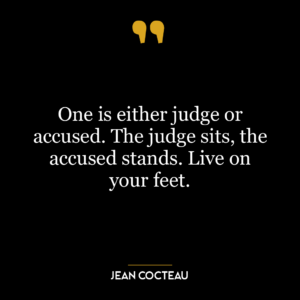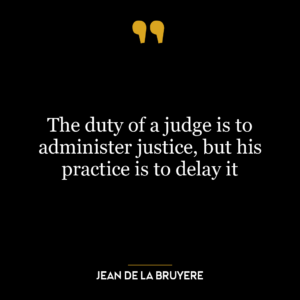This quote suggests that the speaker doesn’t evaluate people based on their abilities, accomplishments, or actions. Instead, they assess people based on the emotional or psychological impact they have on the speaker. The "greatest deed" here refers to the most significant thing a person can do, which, according to the speaker, is to leave a lasting, profound impression on them.
This perspective challenges traditional methods of judging people, which often focus on tangible achievements or skills. Instead, it emphasizes the importance of the intangible, subjective, and deeply personal impact one individual can have on another. It suggests that our true worth lies not in what we can do, but in who we are as individuals and how we affect those around us.
In today’s world, this idea could be applied in various ways. In the realm of personal development, it might encourage us to focus less on developing skills or achieving goals for the sake of external validation or societal expectations, and more on cultivating qualities that positively influence those around us. It might inspire us to strive to be kind, empathetic, understanding, and inspiring individuals who leave a positive and lasting impact on the people we interact with.
In the broader societal context, this perspective could also be a call for a shift in how we evaluate success and worth. Instead of glorifying wealth, power, or fame, we might start valuing the ability to touch people’s lives positively, to inspire, to comfort, to enlighten. This could potentially lead to a more compassionate, empathetic, and understanding society where people are recognized and appreciated for their humanity and the positive influences they bring, rather than their accomplishments or status.









